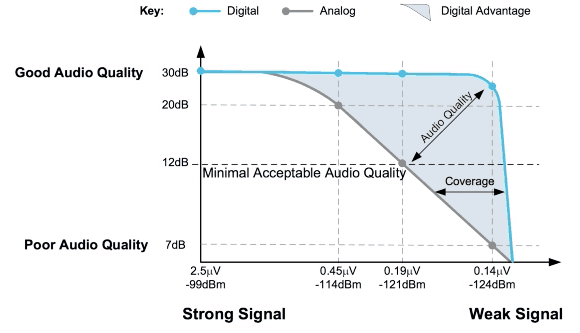Basic Radio Awareness
Communications Systems
Digital vs. Analog
The radio technologies previously mentioned are all open standards, which means that equipment from different manufacturers can work together. Digital radio, however, does offer some particular advantages over analog.
Security: One of the most important advantages is security. With digital, encryption can be used without degrading the quality of the audio or the range at which the radio works.
Data: Digital radio technologies make use of IP-based networks. This means that the data capabilities are increasingly flexible.
Spectral efficiency: Digital makes better use of channels than analog, so the utilization, or spectral efficiency, of digital systems tends to be greater than for analog systems.
Clear audio: There is also a better opportunity for reducing background noise in digital, because we can screen the noise and interference out more effectively. This occurs all the way to the edge of coverage – giving clearer audio than analog at greater distances.
These are some powerful advantages of the modern digital standards that have emerged over the last few decades.
 Radio Academy
Radio Academy






